Your basket is currently empty!
Reading Time 5 Minutes
Money never sleeps. Each week the financial world delivers stories that show just how quickly wealth, innovation, and power are shifting. From billionaires reshaping fortunes through divorce, to Nintendo quietly building a $100 billion empire by focusing on fun, to China’s elites parking billions in hedge funds, the global money game is being rewritten before our eyes.
This week’s stories highlight scandals, breakthroughs, and fortunes that redefine what it means to build, keep, and grow wealth in 2025.
Nintendo’s $100 Billion Secret: Fun Over Everything
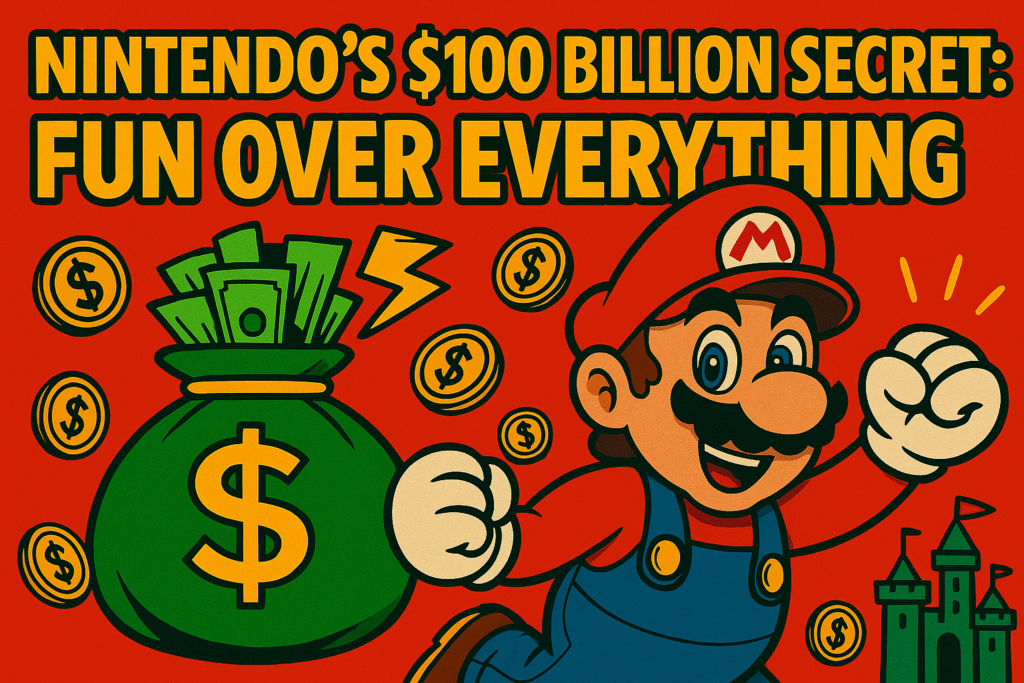
Nintendo has never followed the rules of the gaming industry. While rivals like Sony and Microsoft pour billions into raw graphics power and cinematic realism, Nintendo has built a $100 billion empire around creativity, nostalgia, and accessibility. The Switch 2 has cemented the strategy: deliver joy first, hardware second.
This model reveals a simple truth often overlooked in business: consumers do not always want the most advanced option. They want the most enjoyable. Mario, Pokémon, and Zelda remain household names because they appeal across generations, creating emotional attachment that goes beyond specs. For investors, Nintendo is a case study in the profitability of sticking to your DNA and focusing on timeless value rather than chasing every technological arms race.
China’s Billionaires Bet on Bridgewater: Why Ray Dalio Holds Their Trust
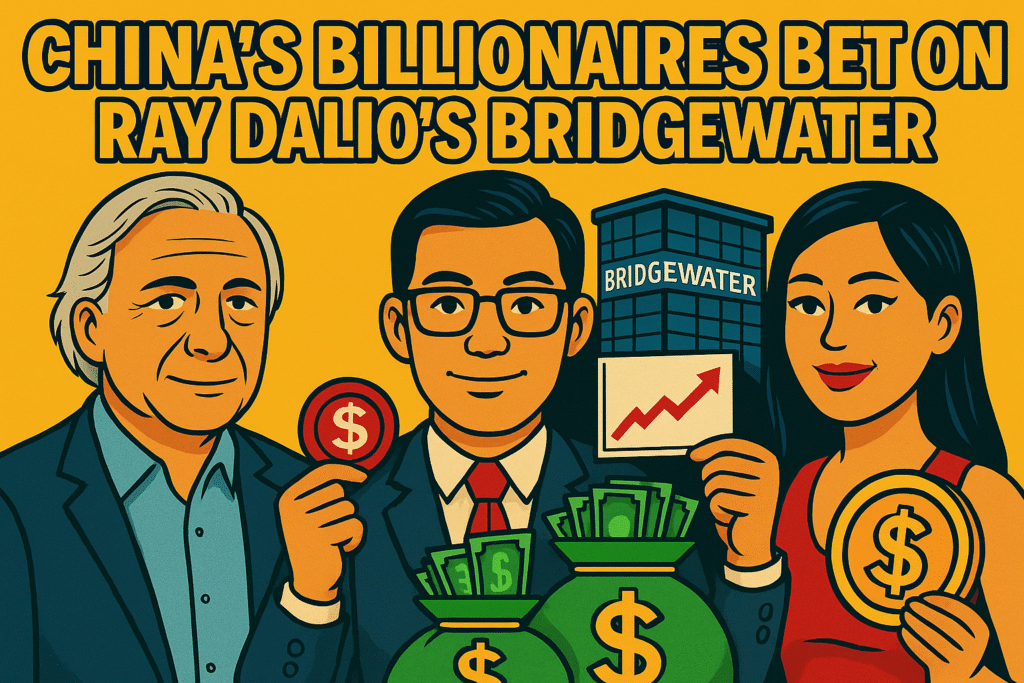
In recent months, China’s wealthiest individuals have been parking billions in banks just to secure access to Bridgewater Associates, the world’s largest hedge fund. On the surface, it looks like a play for higher returns. In reality, it is about much more.
Ray Dalio, Bridgewater’s founder, has been one of the few Western financiers consistently vocal about the importance of China’s rise. He has argued that ignoring China is like ignoring the United States in the early 20th century. He praises the country’s pragmatism in economic planning, its rapid technological advances, and its ability to think in decades rather than election cycles. Dalio has also highlighted how China’s unique blend of state-driven capitalism and debt cycles is different from the Western model but no less effective at sustaining growth.
This perspective resonates deeply with Chinese elites. By investing with Bridgewater, they are not only gaining access to a sophisticated macro hedge fund strategy but also aligning themselves with Dalio’s worldview. He is seen as a bridge between East and West, an intellectual who validates their own nation’s ascent. In China, investing with Dalio has become a symbol of prestige, trust, and alignment with the future.
For readers, the takeaway is that investing is never just about numbers. It is about trust, culture, and narrative. Ray Dalio’s reputation has become as valuable as his returns, and it is why Chinese billionaires are queuing to put billions under his management.
Stablecoins vs Banks: The Fight for Your Paycheck

Imagine receiving your monthly salary not in pounds or dollars but in a stablecoin like USDT or USDC. For banks, this scenario is an existential nightmare. Stablecoins offer instant settlement, low fees, and global usability. If employers bypass banks and pay directly in digital tokens, traditional institutions lose their deposits, their fee income, and their central role in everyday finance.
For individuals, stablecoin salaries could mean faster access to funds, seamless international payments, and protection from inflation in certain economies. For governments, it raises urgent questions about regulation, taxation, and money laundering. What we are witnessing is not simply the rise of cryptocurrency speculation but the potential replacement of payroll systems themselves. Banks are right to be afraid.
The Billionaire Divorce That Created Another Billionaire

Rocket Mortgage founder Dan Gilbert is undergoing one of the most expensive divorces in US history. His wife, Jennifer Gilbert, is leaving the marriage with a fortune that instantly makes her a billionaire in her own right.
Rocket Mortgage began with just $5,000 Gilbert earned selling pizzas during college. Today, it is the second-largest mortgage lender in America. The split of this fortune illustrates a truth often ignored in business media: wealth is shaped not only by markets and IPOs but also by family courts and personal relationships. For billionaires, prenups and estate planning can be as critical as investment strategies. For readers, it is a reminder that financial planning is not only about what you build but how you protect it.
Trump Inc.: How a Presidency Became a Business Asset
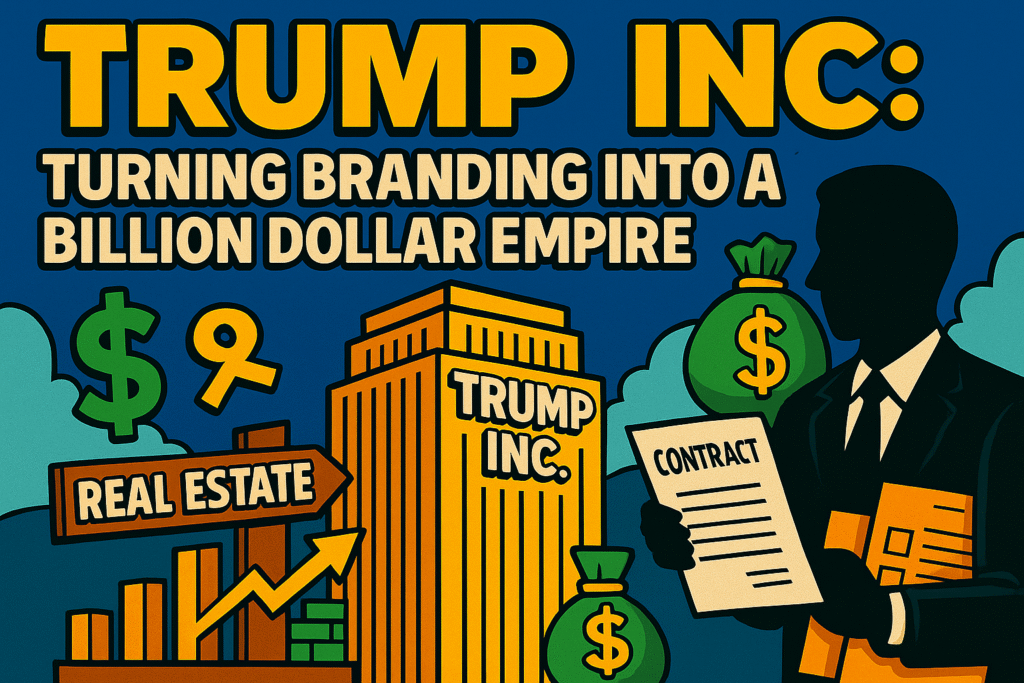
Donald Trump’s presidency continues to blur the line between politics and personal wealth. With a fortune estimated at $6.4 billion, Trump leveraged global visibility to strengthen his brand and empire. Critics argue that policy decisions often aligned with his own business interests, from trade talks to regulatory shifts.
Whether you admire or despise him, Trump represents a modern model of influence monetization. His brand was already strong before the White House, but the presidency amplified it globally. For entrepreneurs, the lesson is controversial yet clear: visibility and power can multiply financial leverage in ways that go far beyond traditional business growth.
Why Starting School Later Boosted Performance

A UK high school ran a four-year experiment that shifted its start time from 8:50 am to 10:00 am. The results were dramatic. Student absences due to illness dropped by more than half, while academic performance rose significantly.
The explanation is biological. Teenagers’ circadian rhythms make early mornings difficult, and the misalignment reduces focus, energy, and health. By aligning school schedules with natural rhythms, outcomes improved across the board.
For businesses and policymakers, the lesson is profound. Sometimes performance improvements are not about working harder but about designing systems that work with human nature instead of against it.
Revolut’s Early Backers: From a £2,000 Investment to £1.4 Million
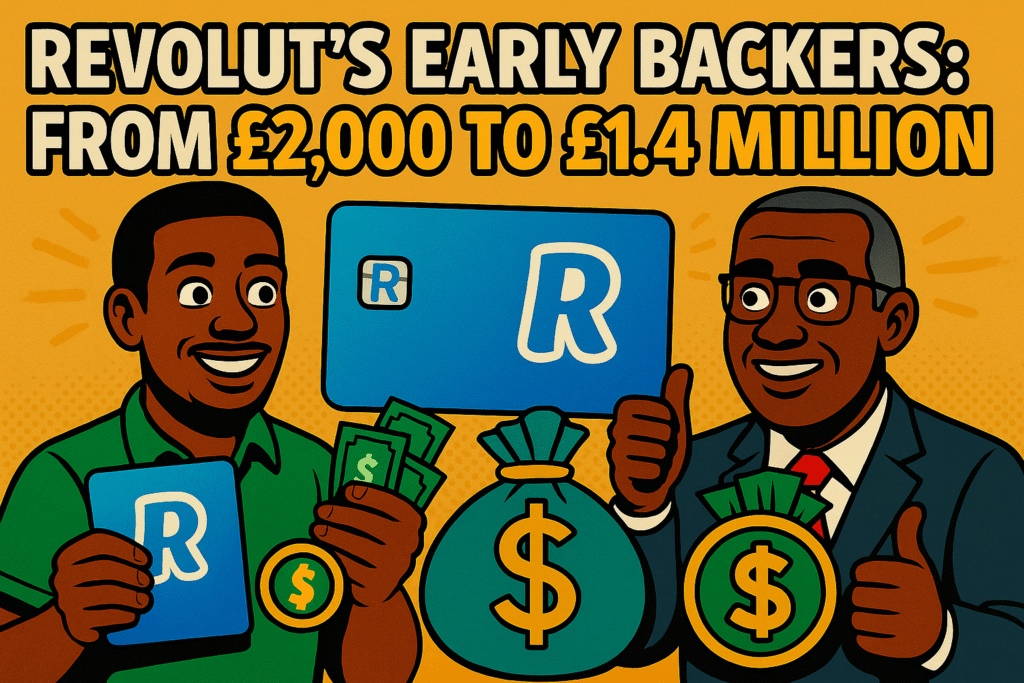
When Revolut was just a scrappy fintech startup, ordinary investors had the chance to invest small amounts during crowdfunding rounds. One person who put in £2,152 now holds a stake valued at £1.4 million. That is a 645x return, the kind of multiple venture capitalists dream of.
Revolut’s rise into a $75 billion fintech giant demonstrates the outsized rewards that early-stage investing can offer. Of course, not every startup becomes a unicorn, but the success of Revolut highlights why diversification into promising early companies can create generational wealth. For readers, the question becomes: what is the next Revolut, and will you recognize it early enough to benefit?
AI Startup Flock and the Promise to Eliminate Crime
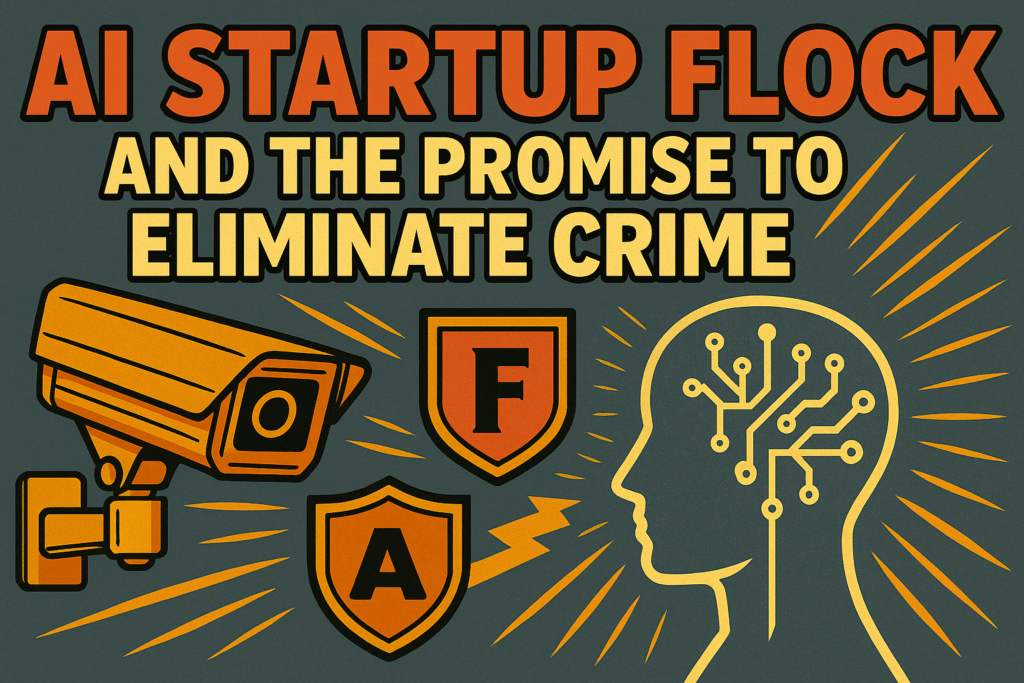
Flock Safety, an AI-powered surveillance company now valued at $7.5 billion, has set itself a bold mission: to eliminate crime in America. With over 80,000 cameras and drones already deployed, it is reshaping how law enforcement and private communities think about security.
The promise of safety sells itself, but it also raises ethical debates. How much privacy are we willing to trade for crime reduction? Will AI-driven surveillance empower communities or create a surveillance state? For entrepreneurs and investors, Flock illustrates the power of framing technology not as a product but as a guarantee. When you sell peace of mind, demand is endless.
The Price of Education in the UAE

In the UAE, the cost of private education has risen so dramatically that parents are increasingly relying on loans and credit cards to cover tuition. Projections suggest that by the time a child reaches university, families may have spent as much as Dh600,000 on schooling.
This has turned education into one of the most pressing financial planning challenges in the region. For businesses, it creates opportunities in education savings products, fintech platforms offering tuition loans, and alternative learning models. Where financial strain exists, solutions become markets waiting to be served.
The Bigger Picture
Taken together, these stories reveal a world where money and power are in constant flux. Nintendo proves that joy can build empires. Ray Dalio’s embrace of China shows that trust and narrative drive billionaire investments. Stablecoins threaten to pull the rug out from under banks. Family courts can create billionaires overnight. Presidents can monetize influence. Schools can transform outcomes with simple schedule changes. Fintechs can deliver 600x returns. AI can sell safety at scale. And education costs can reshape family financial planning.
For investors, entrepreneurs, and everyday readers, the message is simple. Wealth is not built or lost in one place. It is shaped by culture, politics, technology, and human behavior. Staying informed and adaptable is the only way to thrive in the new money order.

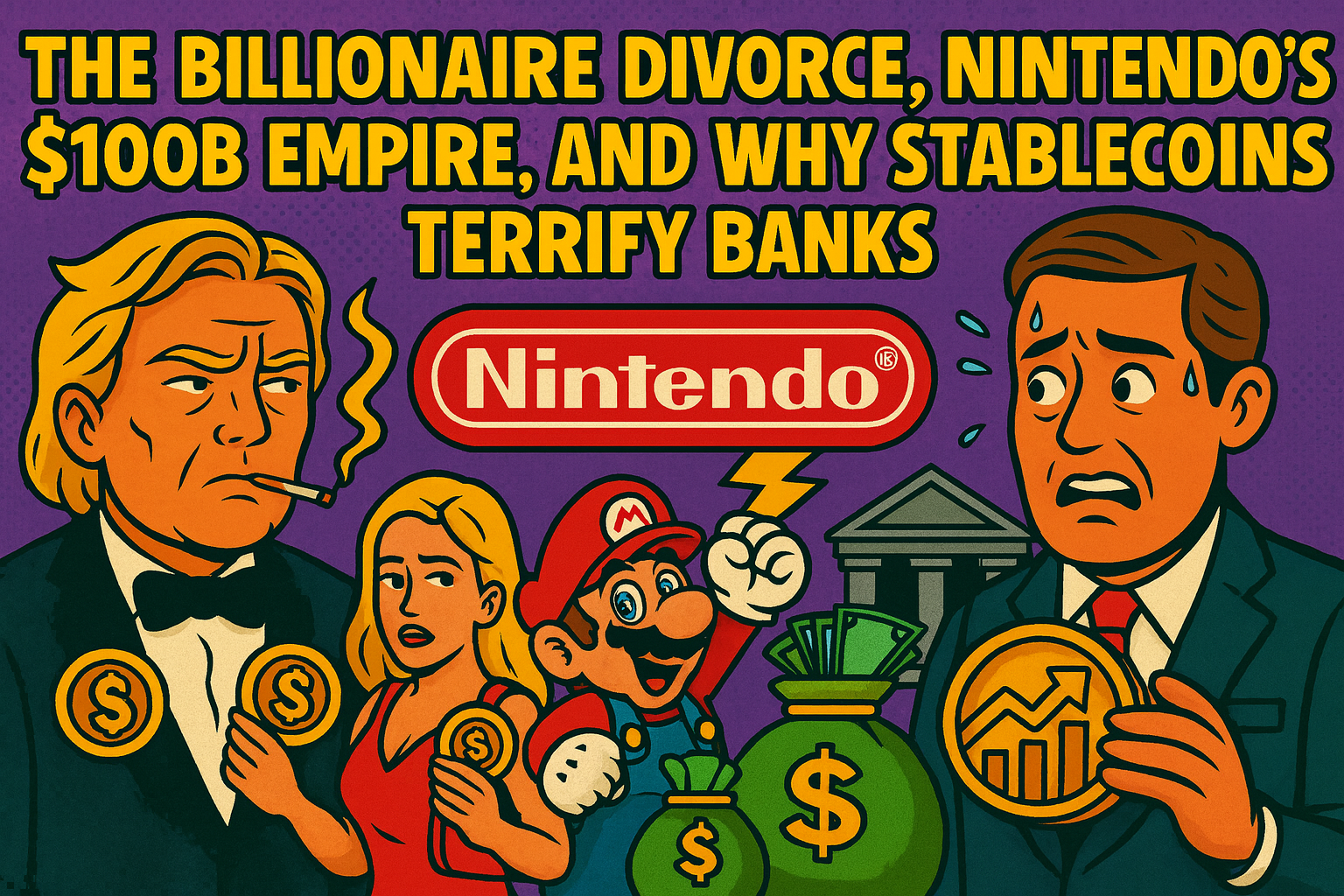
0 responses to “The Billionaire Divorce, Nintendo’s $100B Empire, and Why Stablecoins Terrify Banks”